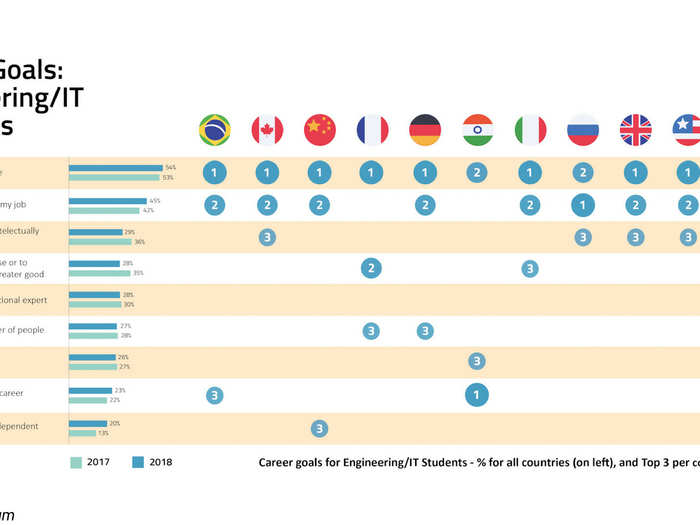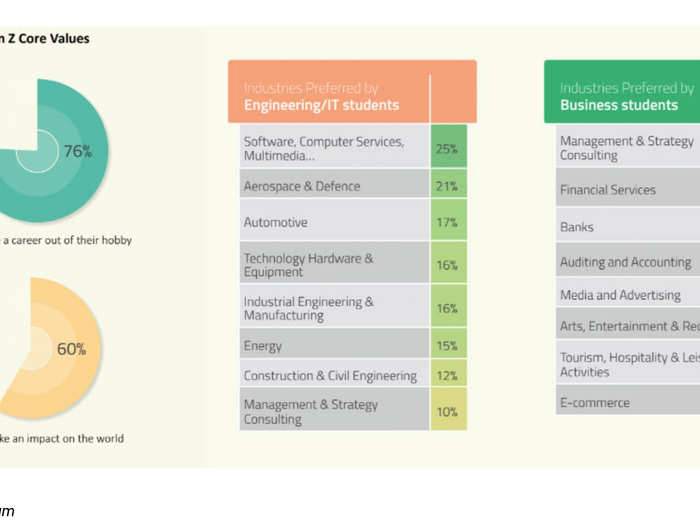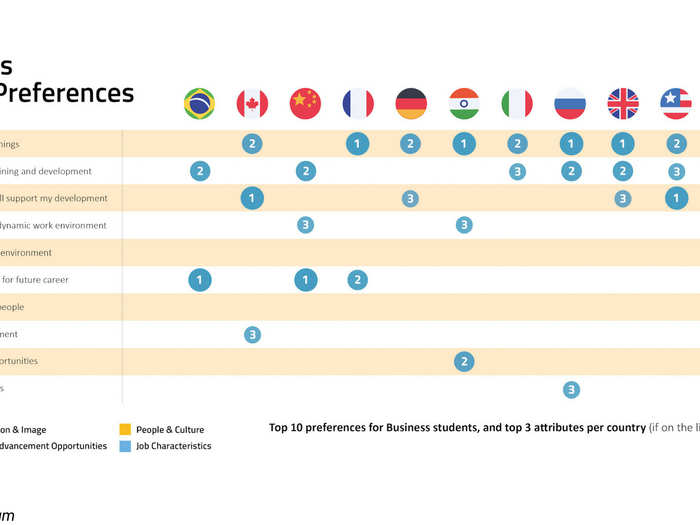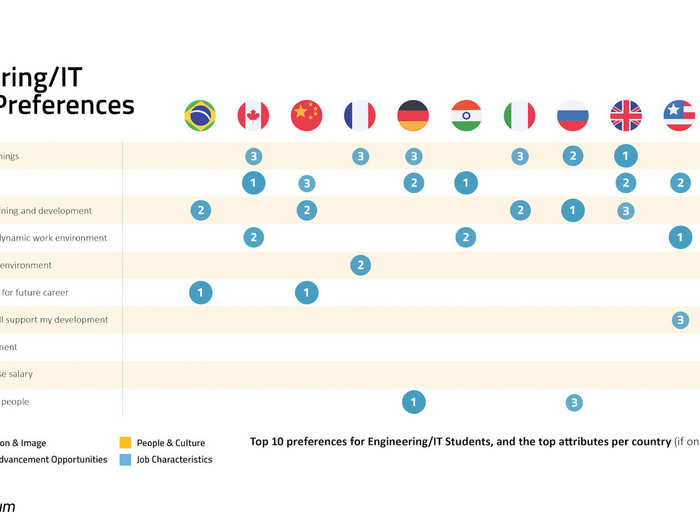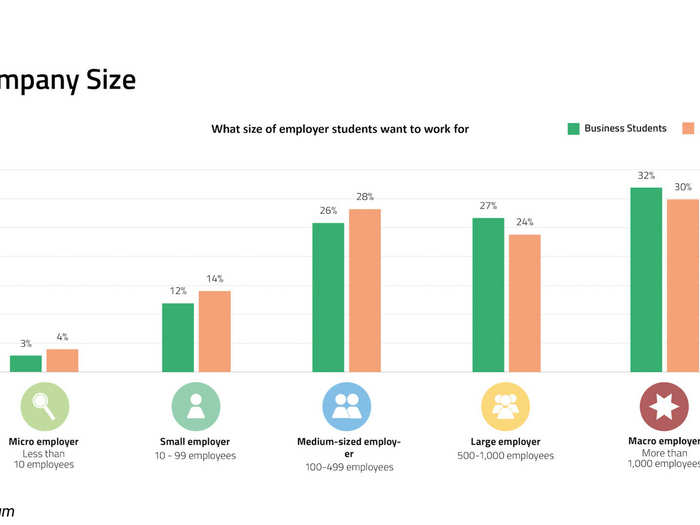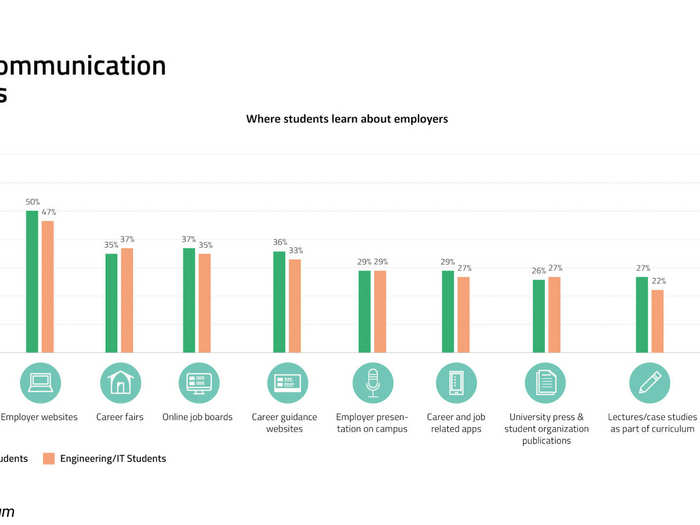Generation Z’s top priority when looking for a job is work-life balance followed by job security. That being said, while balance usually means flexible work hours, for Gen Z it implicates a having purpose and meaning in life as well as work. 70% of respondents indicated that they would want to turn their hobbies into their career choice. The average person spends one-third of their life at work, so when you’re looking to start your career is about more than just having a ‘job’. A recent report by Universum, global research and advisory firm, reveals that to have work-life balance is a priority for business students as well as engineering students across the globe. Universum’s World’s Most Attractive Employers 2018 takes a look at what students are looking at as their career goals when looking to enter the workforce. It’s based on the responses of 228.910 business and engineering students from 12 of the largest economies in the world. The results are then weighted by GDP, so a higher rank in the US would have a heavier bearing on the overall result in comparison to a high rank in India. While work-life balance and job security are common denominators between technology students and business students, the former look towards serving the greater good and the latter aim to be leaders. Here’s a full list of the career goals that students are looking to accomplish:
Engineering and IT student career goals
Even in engineering, Indian students are looking for a job that allows then to travel the world as their top priority. Coming in second is work-life balance, but it should be kept in mind that that could mean different things for different people.
Gen-z core values and preferred industries for work
Companies seem to have the perception that balance implies providing facilities employee that have young children or elder parents. But, for generation Z, it’s more about finding purpose and meaning in life as well as work. In fact, 70% of the respondents that were surveyed said that they would want to make a career out of their hobbies.
Top 10 preferences for business students when starting their careers
High future earning is a decision-driver for business students as well as for engineering students. And, in the strongest economies, both those fields are in high demand. That means competitive salaries and generous signing bonuses.
That being said, there is a disparity where a students want to be a leader or manager of people, but leadership opportunities are not in thier top 10 preferences when looking at a brand.
Ideal company size for students
It’s interesting to note that most students want to work for companies that are already big. Small or up-and-coming companies have the lowest preferences at 3-4%. It ties with a need for job-security that you would want to work at a company that’s already well-established and won’t be too volatile in the coming future.
How students find out about career options
Most brand perception and what students want out of their jobs is based on information that they are exposed to on social media. This can good and bad. One of the hand it helps smaller companies have a equal platform over big giants in the market, but on the other, students are more susceptible to paid content over what is organically available.
“While this year’s findings clearly show that Millennials and Gen Z share many of the same career preferences and aspirations across the world, India remains a very unique market,” says Rachele Focardi, the Chief Strategy Officer APAC at Universum.
She adds, “Even when looking at the most important attributes of their ideal employers, Indian students stand out, in that they value leadership opportunities and innovation significantly more than their global counterparts. These nuances highlight the importance for any business looking to set up operations or recruit talent”
Overall, the report presents an intriguing picture of how short-term goals stack up against long-term goals. And, also how companies need to brace for geographical differences in employers needs and wants. It’s not the same across the board and companies not only need to localise their approach for consumers, but for employees as well.

